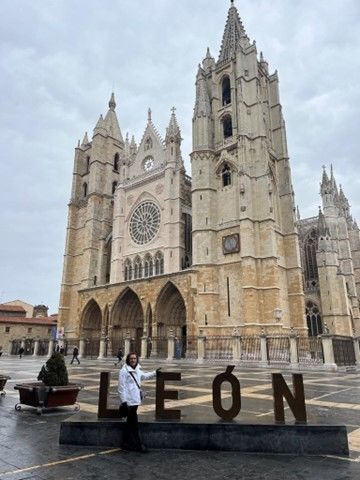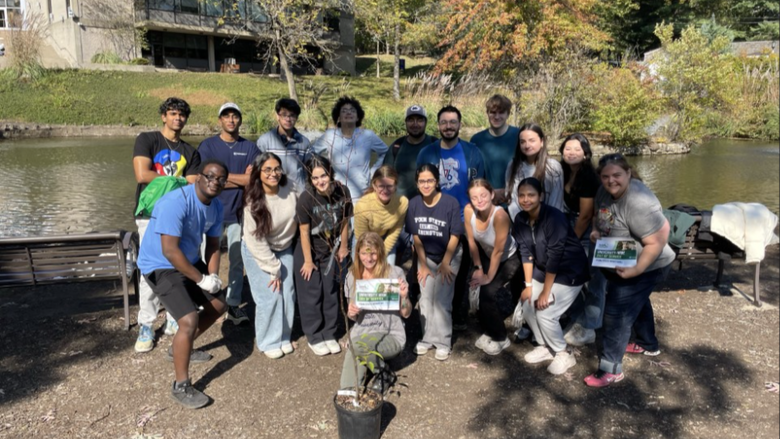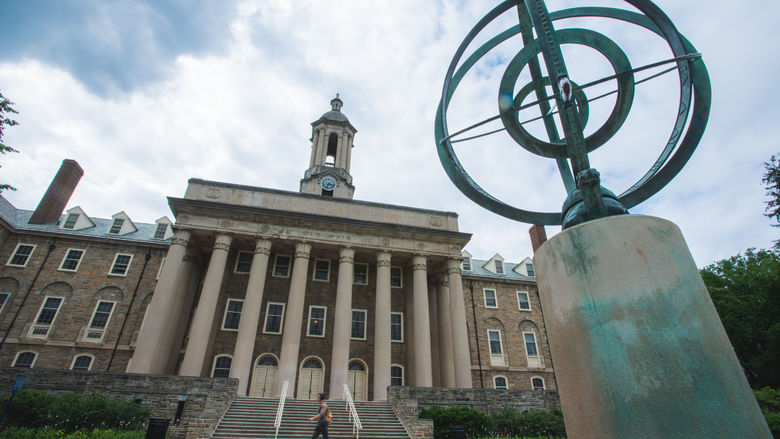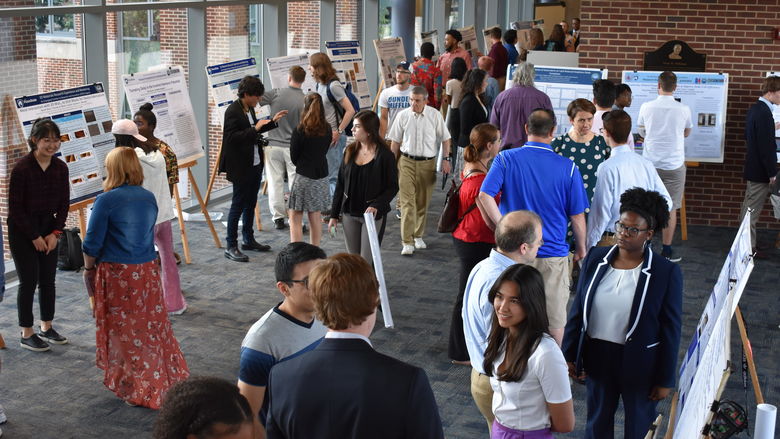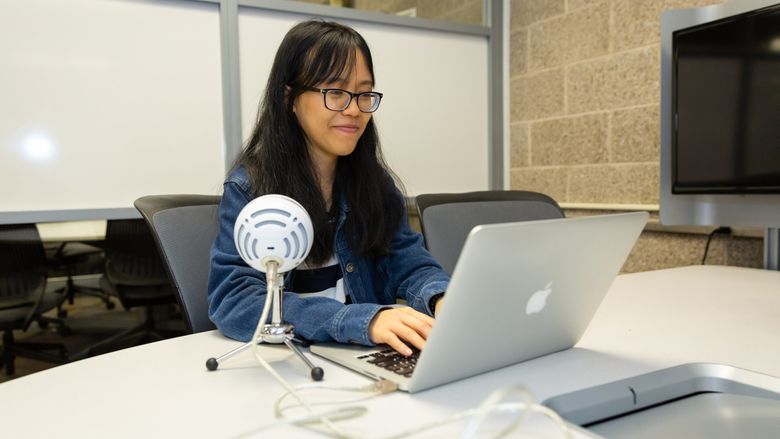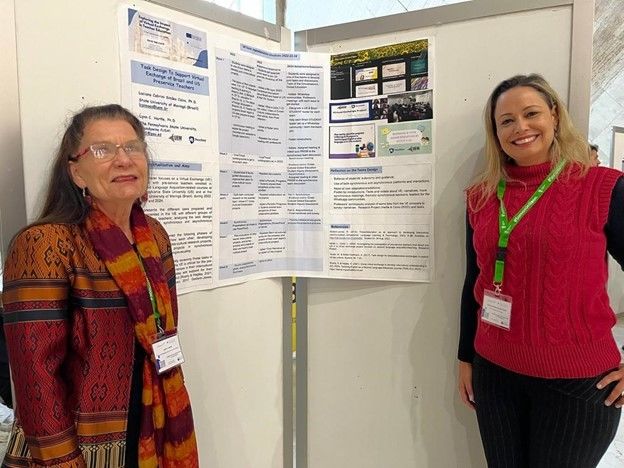
Lynn Hartle and Dr. Luciana Cabrini Simões Calvo present a poster about their EDGE collaboration at the Feb. 8-9, 2024, VALIANT conference in León, Spain.
UNIVERSITY PARK, Pa. — Lynn Hartle, professor of education at Penn State Brandywine, recently completed an Experiential Digital Global Engagement (EDGE) program with a partner in Brazil. EDGE is an international virtual exchange initiative rooted in project-based learning, inspired by the Collaborative Online International Learning (COIL) program at the State University of New York. Hartle first implemented the EDGE program into her teaching back in 2021 and so far has completed three EDGE projects, with more planned for the future.
“I cannot teach about cultural diversity and language acquisition any better than having direct experiences,” Hartle said.
Hartle has been teaching for 50 years and began traveling internationally at age 46. Throughout her career, Hartle has had many opportunities to facilitate global student trips to locations which include, but not limited to, Greece, Cuba and Italy. During the COVID-19 pandemic, Hartle said she knew her international travel endeavors would be put on hold, so she began searching for alternative global experience opportunities.
“I attended a 'Teaching and Learning with Technology' (TLT) conference where Tiffany MacQuarrie [associate director for global academic engagement at Penn State Global] presented the initial stages of virtual exchange programs,” Hartle recalled. Soon after, Hartle reached out to MacQuarrie for more information and resources for implementing virtual engagement into her English for speakers of other languages (ESOL) classes. “Tiffany was very good at pinpointing what I was interested in doing and then finding me a good partner," said Hartle.
If we start this [virtual exchange] earlier with kids all over the world, maybe we would have more global perspective and people caring for each other and working towards solutions rather than starting wars to solve a problem.—Lynn Hartle , professor of education, Penn State Brandywine
After expressing interest through the EDGE Form and reviewing the list of international faculty who are also interested in EDGE projects, Hartle was introduced to Luciana Cabrini Simões Calvo and her English teacher education students from the State University of Maringá in Brazil. Hartle and Calvo shared an overall class focus on second language acquisition (SLA) and intercultural communicative competence (ICC) for pre-service teachers.
Student groups were tasked with researching one of the following topics: contextual information about Brazil and Pennsylvania and their education systems, K-12th grade language teaching and learning in Brazil and the U.S., bilingual K-12th grade education in Brazil and the U.S., the status of foreign languages spoken/accepted in Brazil and the U.S., and how teacher education programs in Maringá and Pennsylvania prepare to teach/support English and other languages of K-12th grade students. During week six of the EDGE project, students presented their findings to the joint class.
Students said they found the process to be easy and enlightening.
“Having WhatsApp made the project go very smoothly. It was a great asset to have to communicate with others across the world. I remember discussing this project with my parents, and they told me how lucky I was that we had phones and technology to do so,” said one participant. “I am very grateful to have had the technology to meet and work with the girls in my group.”
Upon completion of the EDGE project, Hartle had the opportunity to travel to León, Spain, where she met Calvo in person for the first time. Hartle and Calvo attended the Feb. 8-9 "Exploring the Impact of Virtual Exchange on Teacher Education" conference, an international academic conference organized by VALIANT and UNICollaboration, where they delivered a presentation on their EDGE project. Ironically, the conference was presented fully in English, despite being in Spain, said Hartle.
“We have no incentives to learn other languages [as English speakers],” Hartle said.
As a three-time successful EDGE professor, Hartle’s main goal is to encourage other Penn State faculty to get involved with the EDGE program. She credited books such as Rubin and Guth’s 2022 The guide to COIL virtual exchange: Implementing, growing and sustaining collaborative online international learning with helping her more fully understand virtual exchange.
”If we start this [virtual exchange] earlier with kids all over the world, maybe we would have more global perspective and people caring for each other and working towards solutions rather than starting wars to solve a problem,” Hartle said.
EDGE provides opportunities for global and intercultural engagement without the expensive costs of traveling. Virtual exchange can provide a new element to nearly any academic course. For information on how to start an EDGE collaboration, visit www.globalEDGEucation.psu.edu or email Tracy Coleman, EDGE program associate, at [email protected] for more information.
